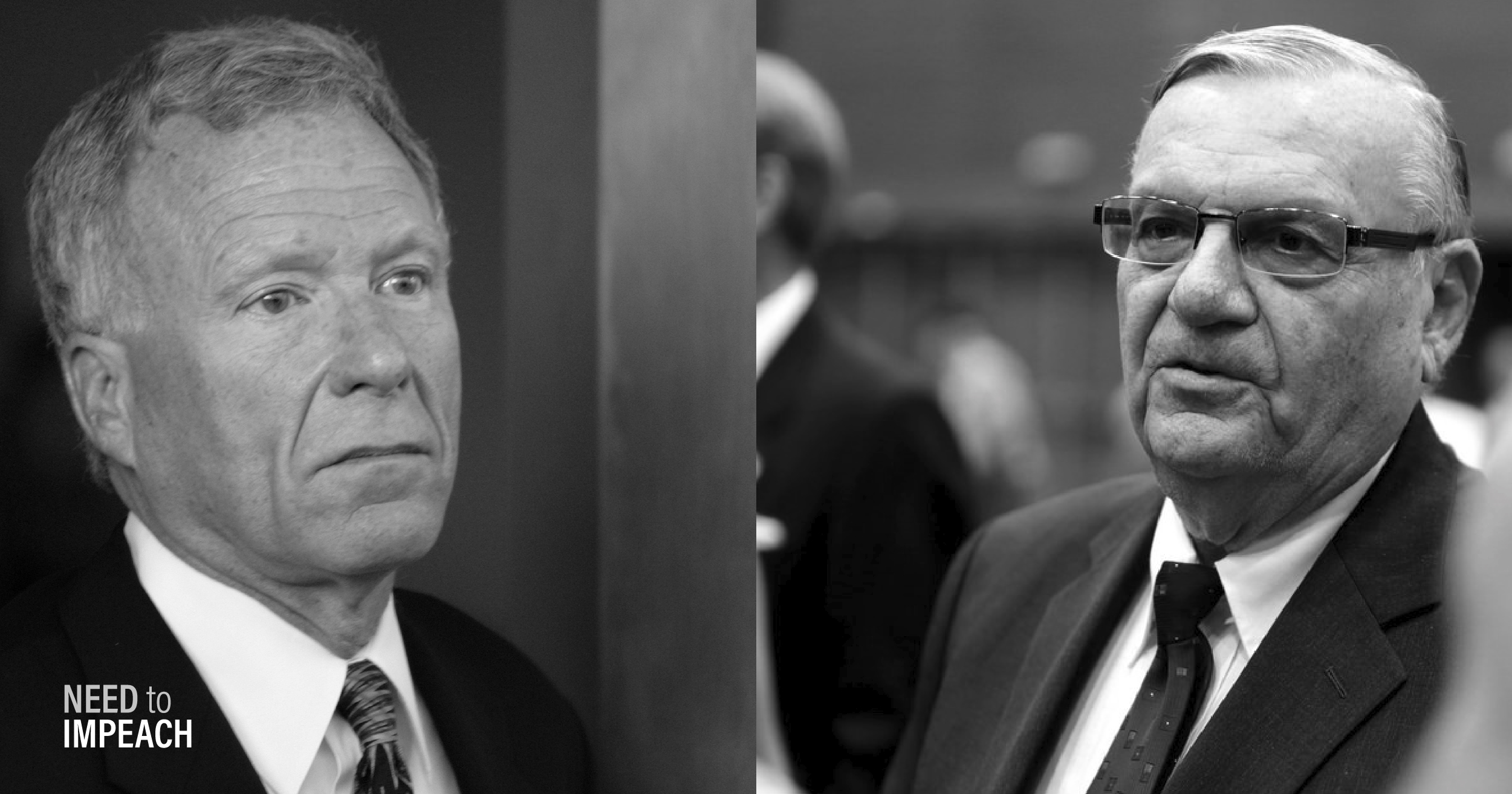“I have absolute right to do what I want to do with the Justice Department” — President Donald Trump
With the pardon of former Vice President Dick Cheney’s Chief of Staff, Scooter Libby, Donald Trump has once again sent a deeply disturbing message. The April 13 pardon, in addition to the previous pardon of Arizona Sheriff Joe Arpaio, demonstrated the power, ethics, consequences, and underlying agenda of Trump’s pardon history. Under Article 2, Section 2, Clause 1 of the Constitution, the President is awarded the power to pardon “all offenses against the United States except impeachments.” However, this function is broadly outlined, and in the case of Trump, has been strategically misused. The move to pardon Arpaio and Libby, along with rumors of possibly pardoning Michael Flynn and Paul Manafort, not only highlight Trump’s complete disregard for the rule of law but also provides insight into his contempt for Special Counsel Robert Mueller’s ongoing investigation.
Read more: Trump’s D’Souza pardon sends dangerous message
In mid August 2017, Trump pardoned controversial Arpaio, setting the precedent for his interpretation and disrespect of the rule of law. Arpaio had gained national notoriety for his aggressive, inhumane, and illegal approach to apprehending and incarcerating undocumented immigrants. In pardoning Arpaio, Trump overturned a conviction of criminal contempt by a federal judge. The White House claimed Arpaio was a “worthy candidate for a presidential pardon,” due to his years of service — completely ignoring his detrimental and divisive role in the immigration debate. In reality, Arpaio’s “service” was not the contributing factor but rather his close alignment with Trump’s racist worldview. Arpaio serves as an example of how Trump will favor those who demonstrate loyalty to him, regardless of how biased, irresponsible, or backwards they might be.
The more recent pardoning of Scooter Libby follows the same narrative, while simultaneously presenting a more overt attack on former FBI director James Comey and the Mueller investigation. In 2007, Libby was indicted and convicted on charges related to a CIA leak. Though President George W. Bush commuted Libby’s sentence at the time, the conviction and revocation of his law license stayed in place.
Watch: Trump trying to pardon himself would be an abuse of power
More so than in the Arpaio case, Trump pardoning Libby indicates two important developments, in addition to the general lack of ethics or morals. First, the Libby pardon serves as a message to Manafort and Flynn, who have both been indicted and subpoenaed in the Mueller investigation. Trump’s pardon signals to them: Stay loyal to me and eventually you will be forgiven. Second, the Libby pardon speaks directly to Comey and the current Mueller investigation. At the time of Libby’s investigation and subsequent indictment, Comey was the one who appointed the special counsel in the case. Trump’s decision to pardon Libby undermines the power of the special counsel while also conveying one final “dig” to Comey.
While the scope of the pardon clause in the Constitution is indeed broad, Trump’s decision to pardon Arpaio and Libby very clearly undermines the rule of law. In doing so, Trump has interjected personal interests and biases instead of upholding facts and truth. Though Trump’s presidency has been characterized by breaking norms, his actions in this instance are so transparent and deceitful we should all be wary of what’s to come.
Tell your Member of Congress to support the “Abuse of the Pardon Prevention Act.”
Investigations
Special Counsel Robert Mueller is moving forward with the investigation into possible coordination between Donald Trump’s campaign and the Russian government during the 2016 election, while Congress’ investigations vary in their direction and effectiveness.
